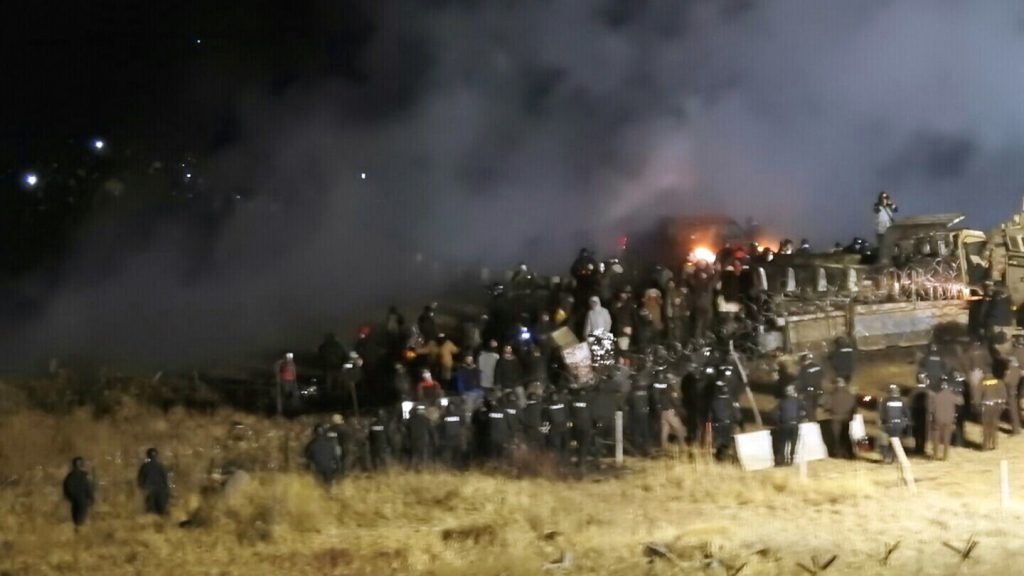A federal judge in North Dakota has dismissed the excessive-force lawsuit of a New York woman, Sophia Wilansky, who was injured in an explosion during protests of the Dakota Access oil pipeline. The lawsuit, filed in 2018, named Morton County, its sheriff, and two officers. The judge granted motions to dismiss the case, stating that the officers’ use of the munitions was intended to disperse Wilansky, not to arrest her, which was a key omission in the complaint.
The protests near the pipeline’s Missouri River crossing, upstream of the Standing Rock Sioux Tribe’s reservation, lasted from 2016 to 2017. The tribe has long opposed the pipeline due to the potential risk of an oil spill contaminating its water supply. An environmental review of the pipeline crossing is ongoing, with options ranging from removing or rerouting the crossing to increasing safety features or leaving it unchanged. A final decision is expected later this year.
Wilansky alleged that officers attacked her with less-lethal and explosive munitions, resulting in severe injuries to her forearm. She sought damages amounting to millions of dollars. While an attorney for Wilansky and her father did not provide immediate comments, attorneys for the defendants did not respond to inquiries. Morton County Sheriff Kyle Kirchmeier declined to comment, citing a possible appeal.
The judge acknowledged the severe injuries suffered by Wilansky and the allegations that officers laughed at her and congratulated one on his “marksmanship.” He expressed concern over devaluing the lives of protestors, noting the allegations of laughter and congratulations were appalling. In addition to dismissing Wilansky’s lawsuit, the judge also dismissed a related lawsuit she filed against officers last year. Other similar lawsuits connected to the protests are still ongoing in court.
Last month, the same judge dismissed a lawsuit filed by an Oregon photojournalist who alleged that officers used excessive force and violated her constitutional rights during a 2017 demonstration. Despite the legal challenges, the pipeline has been transporting oil since 2017, highlighting the ongoing controversy surrounding its construction and operation. The dismissal of these lawsuits indicates the challenges faced by individuals seeking legal recourse for injuries sustained during protests against the pipeline.















